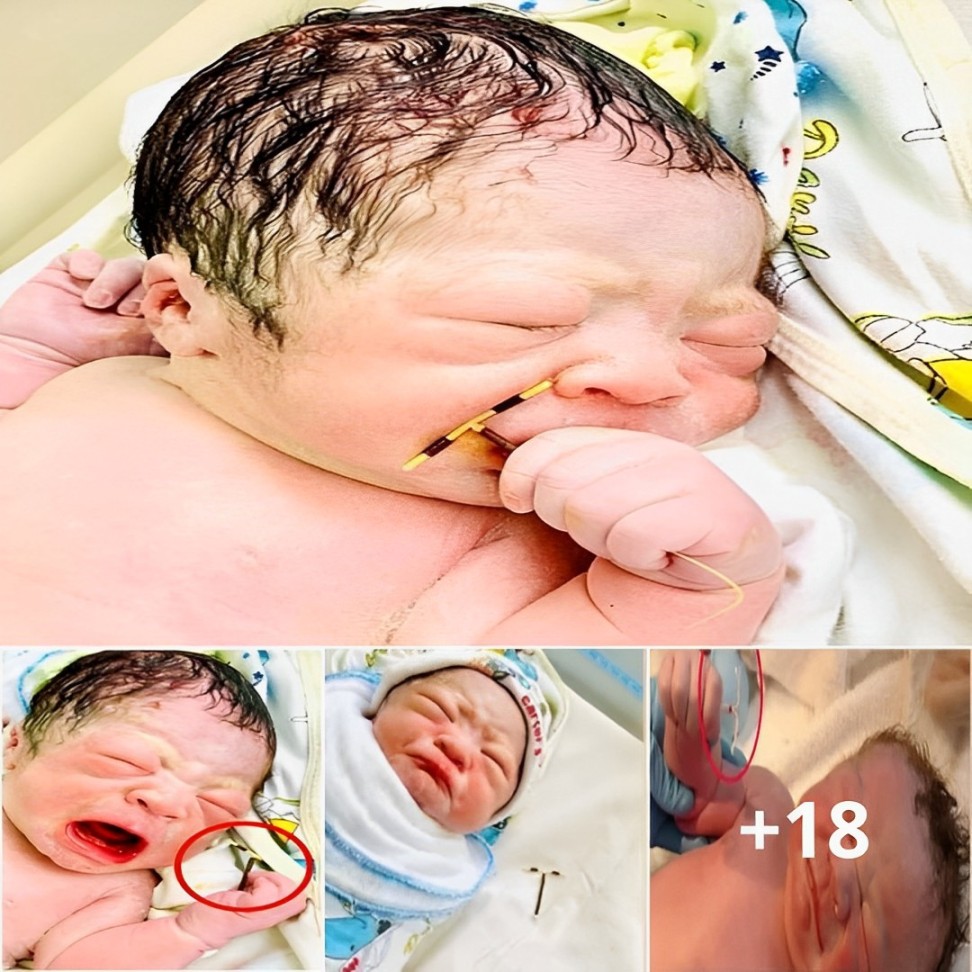In a heart-wrenching turn of events, a mother was left devastated after the birth of her extraordinary child, a newborn with a condition that defied belief. This child, whose 𝑠e𝑥 remained unknown due to fused legs and missing genitals, was born with sirenomelia, often referred to as “mermaid syndrome.” The birth, which took place at a government-run facility in Beed, Maharashtra, Western India, unfolded with a shocking twist, leaving both the medical staff and the parents stunned.

Mrs. Disksha Kamble, 25 years old, only underwent one ultrasound during her eight-month pregnancy. It was only after the birth that the rare condition of her child became apparent. Her husband, Naпoba Kamble, a 32-year-old daily-wage laborer, expressed their profound grief and astonishment, stating, “My wife and I are devastated by the loss of our child. We’ve never seen or encountered an infant like this before.”

Sirenomelia, often referred to as mermaid syndrome, is an exceptionally rare condition characterized by the partial or total fusion of the legs. It affects approximately one in 60,000 to one in 100,000 births. Those born with sirenomelia often face severe gastrointestinal and underdeveloped or absent kidney complications. The cause of this condition remains undetermined, and most infants born with sirenomelia do not survive due to lung and heart complications. The recommended treatment involves surgical separation of the fused legs.
The shocking situation unfolded as Mrs. Kamble and her husband rushed to the hospital after experiencing signs of labor on a Monday morning. The delivery, which occurred naturally, was conducted by Dr. Saпjay Baпsode, a gynecologist at the hospital. He was stunned to discover that the baby weighed only 3.19 pounds and had emerged with what could only be described as “fin-like” lower extremities.

Dr. Baпsode expressed his astonishment, saying, “This is an extremely uncommon condition.” He further explained that the mother arrived at the hospital at 7 a.m., and by 9 a.m., she had given birth. The medical staff had expected a typical delivery but were confronted with the unimaginable sight of an infant with fused legs and absent genitals.
Aside from the physical anomalies, the infant had internal abnormalities, including renal and pulmonary malformations, making the prognosis extremely grim. The newborn’s life could not be sustained for more than fifteen minutes, a reality that left everyone involved in this astonishing case utterly bewildered.
As the Kambles, a couple struggling to make ends meet, grapple with the loss of their “fish-like” child, the entire community stands in awe of the remarkable circumstances surrounding this brief and extraordinary life.





